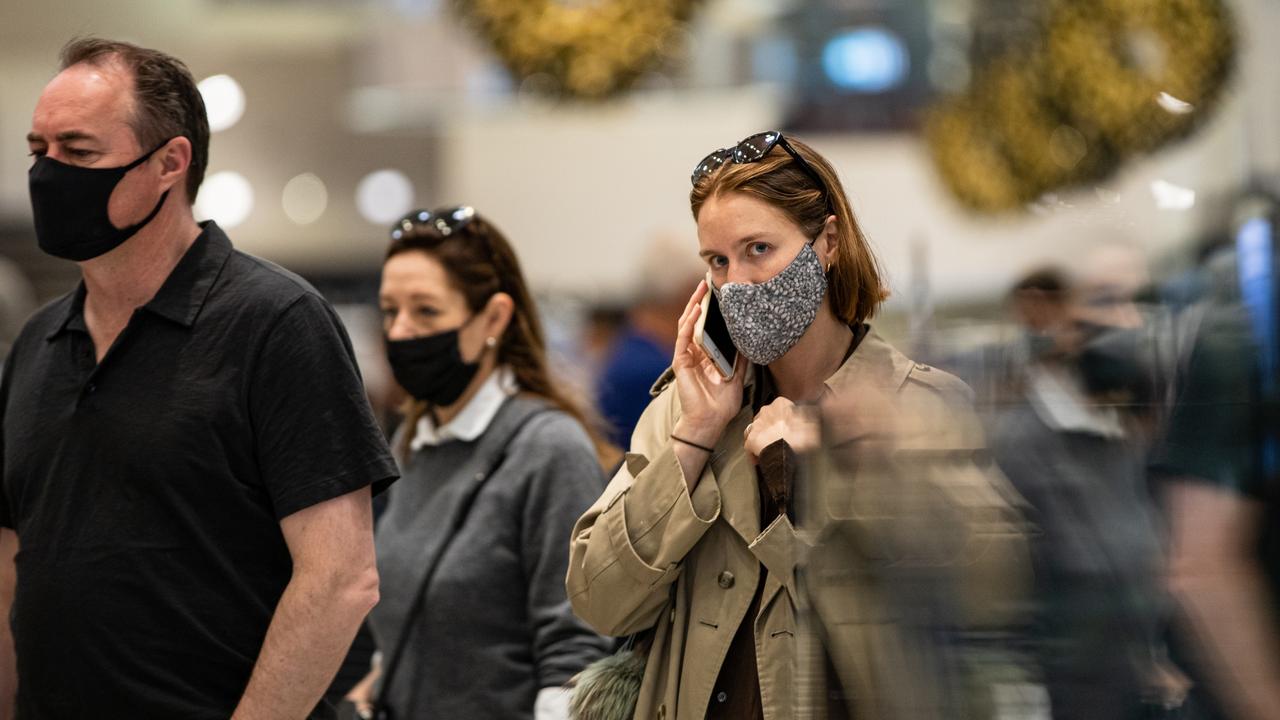What life will be like as the Covid-19 pandemic ends
The end of the pandemic could be just months away so what will life be like once we enter the “endemic” phase of the disease?

There’s increasing hope the end of the pandemic is approaching and life with Covid will start to look quite different.
Experts like internationally renowned epidemiologist Professor Christopher Murray of the University of Washington, are predicting the pandemic will end once this final wave of Omicron sweeps through the world, infecting about 50 per cent of the population by the end of March.
Levels of immunity from vaccination and infection will be at an all time high and Prof Murray believes there won’t be much spread of Covid after the end of this wave.
“Even when the next variant comes along I don’t think we’re ever going to go back to major mandates from government, because the higher levels of immunity will mostly mean less severe disease,” Prof Murray told ABC radio’s Health Report with Dr Norman Swan.
New antivirals will bring down deaths even further.
Following the Omicron wave, Prof Murray believes there will be a lull in infections that could last for some time, particularly in the northern hemisphere, which will soon be enjoying warmer temperatures as they enter spring and summer.
“In the models for example, we don’t see a return of Covid until next winter,” he said.
“Of course if a new variant comes along, it can happen at any time but we should see the lowest ever level of transmission in that period.”
Even in the southern hemisphere, Prof Murray doesn’t believe there will be another Omicron wave during winter this year.
“Because it may be too soon, and so immunity won’t have waned enough for that to happen,” he said.
“So it’ll all come down to a new variant in terms of having a wave before the sort of seasonally expected way.”
Does this mean life will go back to normal? Not quite.

Entering the ‘endemic’ phase
Once a disease becomes endemic, this just means it spreads within the community at a constant or slow rate like malaria and tuberculosis.
But University of NSW biosecurity research program head Professor Raina MacIntyre said “epidemic” spikes in infection will likely continue for some time.
“SARS-CoV-2 (Covid-19) will not magically turn into a malaria-like endemic infection where levels stay constant for long periods,” Prof MacIntyre said.
“It will keep causing epidemic waves, driven by waning vaccine immunity, new variants that escape vaccine protection, unvaccinated pockets, births and migration.”
Prof MacIntyre notes that an epidemic is defined as an outbreak of disease with cases increasing over days or weeks that has a sudden impact on the health system, while an endemic disease sees cases rise over years or decades.
A pandemic is simply an epidemic that impacts the world.
Prof MacIntyre said there would continue to be recurrent epidemic waves of Covid if the reproductive rate, or R0, rose above one, which means each person who gets the disease spreads it to at least one other person.
“If the R0 is (greater than) 1, we typically see recurrent epidemic waves for respiratory transmitted epidemic infections,” she said.
“This pattern was seen with smallpox for centuries, with measles and influenza still and with SARS CoV 2 for which we have seen four major waves in two years.”
Eventually it’s hoped transmission will become more predictable, even if there are still spikes in cases at times.

Unfortunately getting infected with Covid does not provide someone with lifelong immunity from the virus and the protection of vaccines also fade over time. This means countries will continue grappling with the cycle of infection and waning immunity into the future.
Officials will also need to be on the lookout for new variants that can evade immunity and which experts have warned are unpredictable and may not necessarily be less severe.
How we’ll deal with continuing infections
Spikes in infections could happen when a new variant emerges, during the change of seasons or if public health restrictions are not strict enough.
“This is why we need an ongoing Vaccine-PLUS and ventilation strategy, to keep R below 1 so we can live with the virus without major disruption to society,” Prof MacIntyre said. “There will be more variants coming.”
This would see continuing use of vaccines to help control the spread of Covid, as well as the ongoing use of masks and improvement to ventilation systems.
Prof Murray believes improved antivrirals and vaccinations, including boosters, will continue to play a part in the Covid response, but he doesn’t think there will be government mandates for things like masks and social distancing, because Omicron is so infectious these measures won’t reduce transmission much.
“I think it’s a very big distinction … between governments mandating masks and social distancing, and people-at-risk choosing masks and social distancing,” he said.
More Coverage
“People have learned ways to protect themselves – mask wearing and social distancing – and if you’re older, or you have comorbidities, when a new variant comes along, you may until you know the evidence is clear that it’s mild, you’ll probably want to protect yourself but I can’t really see governments requiring that as we move forward.”
Despite the looser restrictions, mass hospital admissions and deaths should decline steeply thanks to immunity in the community (whether that be through infections or vaccination), as well as improved treatments including new antivirals.
The continuing impacts of long Covid, which it’s been estimated could impact tens of thousands of Australians, are also yet to be fully understood but ongoing symptoms of fatigue, abnormal breathing, pain and even anxiety or depression, could be something the world grapples with for some time.





